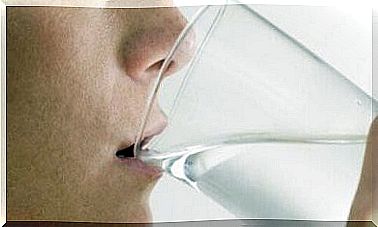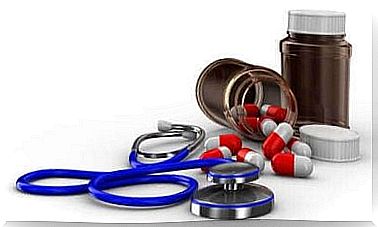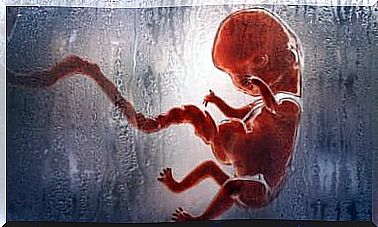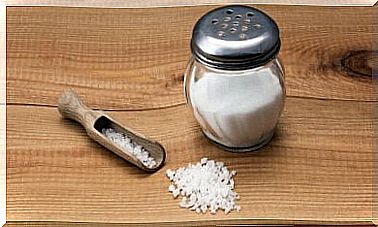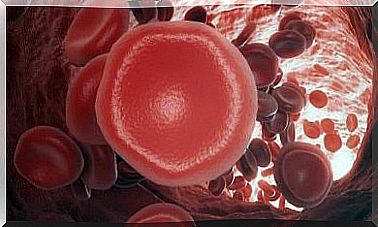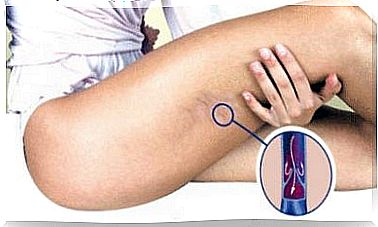What Causes Heartburn And What Helps?
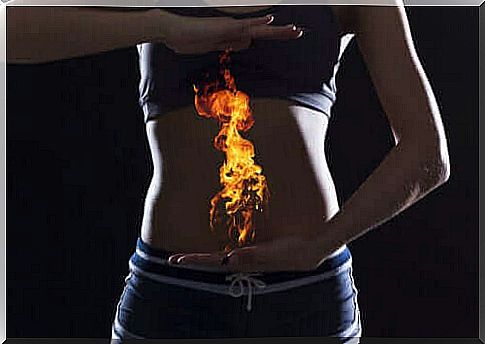
Pain or a feeling of burning in the mouth of the stomach is a common symptom in adults. It is called heartburn. In this article, we’ll talk about what causes heartburn and what exactly it is.
This burning sensation in the stomach, which can sometimes extend behind the sternum, may not always feel so disturbing. In any case, lifestyle changes are needed to tackle the problem.
What is heartburn?
The stomach is the organ that forms part of the upper digestive tract. It is located in the upper abdomen in the middle. Above it is the esophagus and below it the small intestine.
The function of the stomach is to help with the digestion of food. The acid it produces, called stomach acid, helps digest protein and absorb iron, calcium and vitamin B12. In addition, stomach acid kills a large portion of the microorganisms we swallow and inhibits the growth of bacteria, which also helps prevent intestinal infections.
If gastric acid does not continue into the small intestine but instead travels back to the esophagus, we experience it as gastroesophageal reflux. At this point, it is good to clarify that to some extent this backflow is physiological. This type of reflux usually occurs after seizures, is short-lived, causes no symptoms, and occurs less frequently at night.
Where reflux, on the other hand, causes disturbing symptoms and complications, it is known as non-physiological gastroesophageal reflux. This causes heartburn, or pyrosis, a burning sensation in the stomach area or behind the sternum.

What causes heartburn?
When we eat, food travels from the mouth through the esophagus towards the stomach. The esophagus and stomach have a round muscle called the lower esophageal sphincter, which helps prevent the contents of the stomach from returning to the mouth.
When, for some reason, the acidic contents of the stomach rise back upward, being other than what we call physiological reflux, a person may experience heartburn. The exact causes of heartburn are still being investigated.
There are a variety of possible theories, such as changes in gastrointestinal motions, body acid production, stress levels, or diet, in addition to mental and hereditary factors.
We need to clarify that we are not talking now about the diagnoses defined here, such as gastric ulcers, esophageal reflux disease, irritable bowel syndrome, or gallstones. However, in all of these cases, the person may also experience heartburn.
Risk factors and causes of heartburn
The causes of heartburn are still being investigated, but some things are known to be “risk factors”. They should be avoided whenever possible to reduce heartburn.
One of these factors is diet. It can affect stomach acid levels in some people, especially when consuming spicy and fatty foods or citrus fruits, tomato-based products (such as ketchup), mint, chocolate, carbonated drinks, or alcohol.
Being overweight is also one factor that increases the risk of suffering from heartburn. During pregnancy, it is common to have heartburn for a similar reason, as the uterus dilates and presses on the stomach, causing reflux due to changes in anatomy.
When to see a doctor
In some cases, further tests are needed if you suspect heartburn for some specific reason. In such situations, it is always best to see a doctor.
It is important to note that if a person over the age of 60 develops heartburn and has not had it before, it is a matter of concern. Even more alarming is if the patient also has gastrointestinal bleeding (seen as blood in vomiting or feces).
Anorexia is one worrying factor, as is unexplained weight loss or difficulty swallowing. Sometimes the patient may also experience chest pain that is not related to a cardiac event but originates in the digestive system.
If a person has had cancer in their immediate family, that is, if their parents, uncle, aunt, or grandparents have had any cancer, it is important to be even more alert to heartburn symptoms and see a doctor relatively urgently.

What to do if you suffer from heartburn
For those people who experience heartburn in their stomach or sternum mildly and occasionally, there are some help. Here are some guidelines to follow as they can help relieve your symptoms.
- Weight loss when a person is overweight.
- Raise the main side of the bed: This can be done by placing wooden or plastic blocks under the bed legs or a wedge under the mattress. Do not use too many pillows as this can cause neck pain.
- Avoid foods that aggravate symptoms: These include, for example, coffee, chocolate, alcohol, mint, and fatty, deep-fried, spicy, and hot foods.
- Quit smoking: Tobacco causes heartburn.
- Avoid late meals: Going to bed on a full stomach can make heartburn worse. Try to eat at least two or three hours before bedtime.
Experts recommend avoiding over-the-counter acid blockers. It is always best to go to a doctor to report such ailments. If symptoms worsen, occur at night, or persist for a long time, we recommend that you see a doctor as soon as possible.

